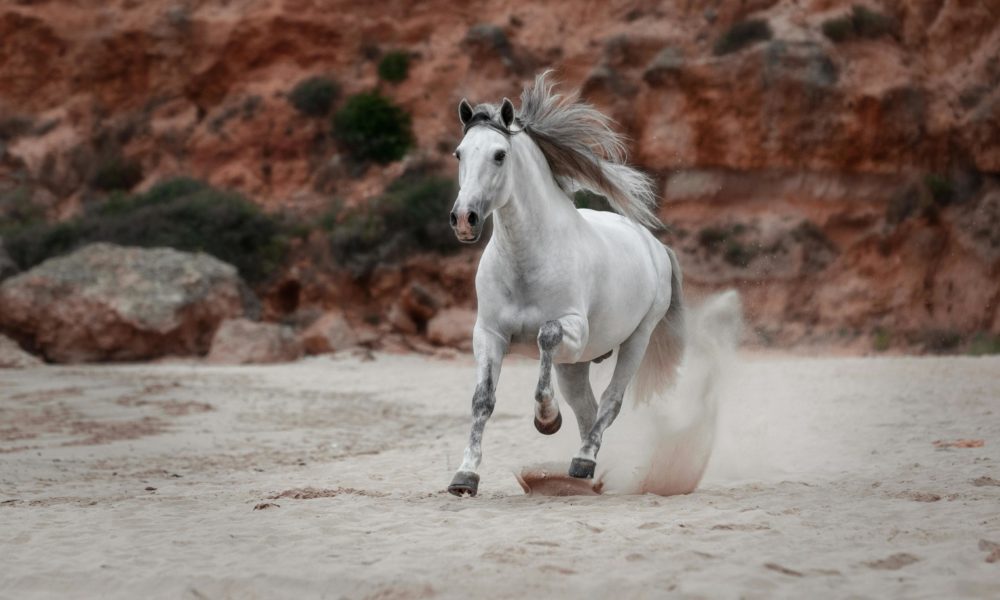
From Hauling to Healing: Honoring Horses on World Horse Day
Celebrating Horses’ Enduring Impact on Humanity This July 11
Every July 11, the world takes a moment to honor one of humanity’s oldest and most faithful companions: the horse. Declared by the United Nations as World Horse Day, this special occasion is more than a celebration of beauty and grace. It’s a tribute to the crucial role horses have played, and continue to play, in the development of civilizations, cultures, and communities across the globe.
A Partner in Progress
The history of the human–horse relationship dates back over 5,000 years. According to archaeologists, the Botai people of Kazakhstan were among the first to domesticate horses around 3500 BCE. From there, horses spread across continents, revolutionizing transport, trade, agriculture, and warfare.
In ancient societies like Mesopotamia, Egypt, Greece, and China, horses were not only used for work and mobility but also became symbols of power and prestige. The invention of the chariot, drawn by horses, changed the face of warfare and allowed empires to expand their territories. In medieval Europe, horses were indispensable to knights and armies. Throughout the 18th and 19th centuries, they pulled plows, carriages, wagons, and fire engines – all long before the invention of the internal combustion engine.
Building the Modern World
Few animals have shaped human advancement as deeply as horses. In the United States, for example, horses were essential to westward expansion. They carried settlers, hauled goods, and helped farmers till the land. The Pony Express relied on brave riders and swift horses to deliver mail across great distances, a vital link in the development of communication across America.
Globally, horses supported economies and livelihoods. In agriculture, they provided the power before machines. In transport, they were the lifeblood of cities and rural areas alike. Even today, in many parts of the world, horses remain critical to rural communities and small farms.
According to the Food and Agriculture Organization of the United Nations (FAO), there are approximately 60.8 million horses worldwide. Many work in transport, farming, and cultural roles, especially in developing countries. Recognizing this, the FAO promotes the humane treatment of working equines, highlighting their importance to food security and sustainable livelihoods.
Cultural Icons, Emotional Allies, and Medical Contributors
Beyond their economic and practical contributions, horses have galloped into our myths, art, and hearts. From Pegasus in Greek mythology to Bucephalus, Alexander the Great’s legendary steed, horses have long been revered as noble creatures.
In literature and film, horses often symbolize freedom, strength, and loyalty: think of Black Beauty, The Black Stallion, and the emotional bond between horse and human in War Horse. Their beauty and sensitivity have also made them powerful partners in equine-assisted therapy, helping people with disabilities, post-traumatic stress disorder (PTSD), and emotional trauma find healing and confidence.
Numerous studies have shown the therapeutic value of horses. A 2018 randomized trial published in Military Medical Research found that veterans with PTSD experienced a significant reduction in symptoms after participating in a therapeutic horseback riding program. After just three weeks, 66.7% of participants showed lower PTSD scores, increasing to 87.5% after six weeks, with continued improvement in emotional well-being and quality of life.
Their intuitive nature allows horses to mirror human emotions, creating a safe, nonjudgmental space for connection and healing.
Horses have even contributed to the medical field at the biochemical level. In the late 19th and early 20th centuries, horse serum was used to develop lifesaving antitoxins for diseases such as diphtheria and tetanus. German physiologist Emil von Behring won the first Nobel Prize in Physiology or Medicine in 1901 for his pioneering work using horse-derived antibodies to combat diphtheria.
Even today, horse-derived antibodies are used in the production of antivenoms for treating snake bites, scorpion stings, and other toxic exposures. Horses are immunized with small amounts of venom, and the antibodies they produce are harvested and purified for use in humans. The World Health Organization endorses this practice as essential in many regions where antivenoms are in short supply.
This remarkable contribution underlines how horses have not only carried us physically through history but also helped protect and heal us in times of medical crisis.
Celebrating UN World Horse Day
On July 11, UN World Horse Day encourages people around the world to pause and appreciate the legacy and ongoing importance of horses in our lives. It’s a chance to celebrate their contributions, raise awareness about their welfare, and acknowledge the deep bonds we share with them.
How can you celebrate World Horse Day?
- Visit a local stable or sanctuary: Learn more about horses and meet these incredible animals up close.
- Support equine welfare organizations: Groups like the Brooke, World Horse Welfare, and The Donkey Sanctuary work to improve the lives of working equines and educate communities on proper care.
- Read or watch horse stories: Engage with the many books, movies, and documentaries that explore the history and heroism of horses.
- Take a riding lesson or go trail riding: Experience the joy of riding and connecting with a horse in motion.
- Share stories and raise awareness: Use your voice on social media to highlight the role of horses and advocate for better treatment and recognition.
A Legacy Worth Honoring
Horses helped plow the fields that fed us, carried messages across mountains and deserts, and stood beside soldiers in battles that shaped nations. They’ve been our workers, our warriors, our muses, and our friends.
Today, they continue to enrich human life in countless ways, from sports and therapy to medicine, companionship, and culture. On UN World Horse Day, let’s take the time to remember all that we owe these majestic animals and commit to ensuring they are treated with respect, kindness, and care.
There is something about the outside of a horse that is good for the inside of a man.”
– Proverb, around mid-19th century
Let us honor that wisdom on July 11 and every day.
Featured image: pexels


